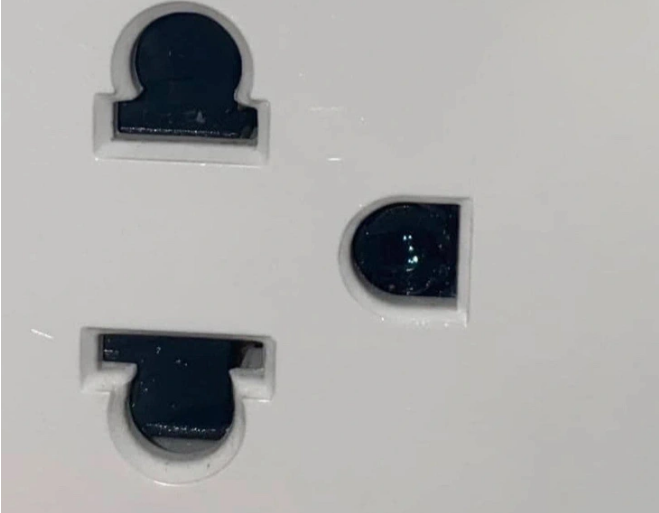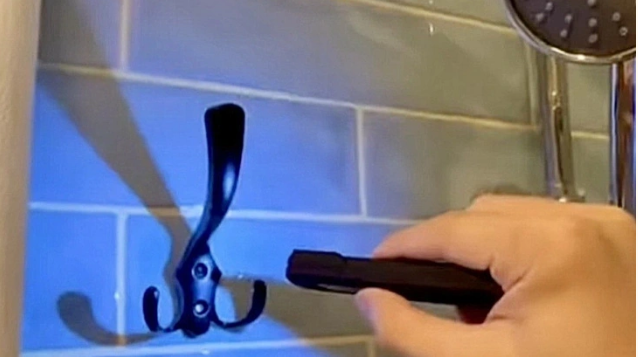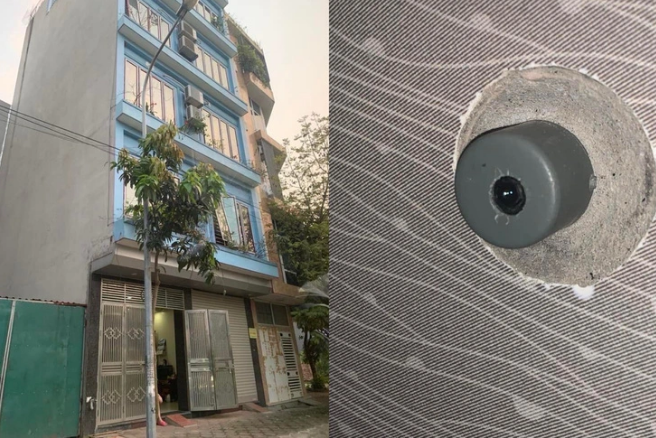A range of miniature candid cameras are being openly sold to the public, raising serious concerns about privacy and illegal activities.
A simple online search by Tuoi Tre (Youth) newspaper journalists for ‘hidden cameras’ or ‘disguised cameras’ on social media platforms revealed numerous groups offering these invasive products.
The journalists then made contact with a camera store based in Hanoi, where a staff member showcased an array of covert cameras disguised as everyday items such as sockets, lightbulbs, phone chargers, and pens.
These miniature cameras are discreet and challenging to detect. However, users can easily connect them to their phones to view recorded content directly.
The price of these devices varies depending on the image quality and the sophistication of the disguise, ranging from VND 1.2 million (US$47) to VND 1.6 million (US$62.4) each.
According to the store employee, the most popular items are the cameras hidden in lightbulbs and sockets, which are easily passed off as ordinary objects.
The unrestricted sale of these spy cameras has provided opportunists with a tool to invade privacy and engage in illicit activities, such as uploading footage to questionable websites or embedding it in gambling advertisements.
|
|
| Image caption: A camera discreetly hidden within a socket. Source: T.A. / Tuoi Tre |
Invasion of Privacy
Vo Do Thang, director of Athena, a cybersecurity training center, shed light on the two primary motivations behind the use of invisible cameras: perverse hobbies and financial gain through the monetization of footage on foreign websites and gambling ads.
Thang emphasized the severe privacy violations inflicted upon unsuspecting victims, which could lead to depression or even suicidal tendencies if the images are publicized on social media platforms.
He urged individuals to be vigilant and proactive in protecting their privacy. When visiting unfamiliar places, it is crucial to inspect items such as smoke detectors, lightbulbs, TVs, and sockets for any signs of tampering or hidden devices.
If something seems amiss, the best course of action is to leave the premises immediately and report the incident to the local authorities.
Additionally, Thang recommended investing in specialized equipment designed to detect spy cameras to enhance one’s security.
Legal Consequences
Dang Van Cuong, a lawyer from the Hanoi Bar Association, clarified to Tuoi Tre that collecting personal information and recording or photographing individuals without their consent is illegal and carries significant penalties.
Those who install hidden cameras face hefty fines ranging from VND 3-30 million ($117-1,169) and may even face criminal charges for their actions.
Recent discoveries of disguised cameras in hotels and boarding houses have sparked public outrage and heightened concerns about privacy and security.
Pham Van Hoa, a National Assembly (NA) deputy and member of the NA Committee on Legal Affairs, strongly condemned these actions, highlighting the deviation from moral and legal standards. He emphasized that such behavior represents a perversion of thoughts and actions, violating the law and the privacy of individuals.
The ease of purchasing these candid cameras online has enabled malicious individuals to acquire and utilize them for illegal data collection. Hoa acknowledged that while Vietnam has regulations in place to punish violators, often, these spy cameras are only discovered after residents report suspicious activities or when victims’ images are circulated on social media.
To deter similar incidents, Hoa suggested that local authorities and law enforcement agencies should conduct regular inspections of motels and boarding houses, holding owners accountable and imposing severe penalties for non-compliance.
|
|
| Image caption: A helpful guide to detecting spy cameras. Source: Self-created |
Uncovering Hidden Cameras
Le Tran Ha, director of the technical service and warranty center at FPT Shop, a prominent Vietnamese retailer of phones, laptops, and electronics, warned that miniature cameras are flooding the local market and can be concealed in various everyday items.
He offered several methods for detecting these hidden devices, including turning off the lights and using a phone’s flashlight to scan suspicious areas. Pay close attention to objects such as clocks, photo frames, mirrors, books, and electronic devices, as these can be potential hiding spots.
Ha also suggested using polarized glasses, which can help identify camera glare, and recommended several mobile applications designed to detect hidden cameras, including Hidden Camera Detector, Fing, and Glint Finder.
Additionally, checking the list of devices connected to your Wi-Fi network can be helpful, as most invisible cameras require an internet connection to transmit footage.
|
|
| Image caption: A boarding house in Ha Dong District, Hanoi, where hidden cameras were discovered. Source: D.X. / Tuoi Tre |
In a disturbing incident, Vietnamese fashionista Chau Bui reported to the Ho Chi Minh City police that she had found a hidden camera in a restroom at a local studio while changing clothes. The camera was concealed within a watch covered by a towel, and the perpetrator, a male employee of the studio, later confessed to the act.
Similar incidents have been reported in Hanoi, with several boarding houses discreetly placing cameras in rooms occupied by female tenants.
In April 2023, N., the owner of a boarding house in Hanoi, was fined VND12.5 million ($487.4) for installing hidden cameras in several bathrooms. During the police investigation, N. admitted to purchasing three hidden cameras online and positioning them in bathrooms used by female tenants to spy on them while bathing.
Law enforcement agencies in Hanoi’s Ha Dong and Cau Giay districts have been actively investigating and prosecuting cases involving the illegal use of hidden cameras, emphasizing the seriousness of the issue and their commitment to protecting the privacy and safety of citizens.
The discovery of hidden cameras in sockets, restrooms, and boarding houses underscores the importance of vigilance and the need for stricter regulations and enforcement to deter such invasive and illegal activities.







